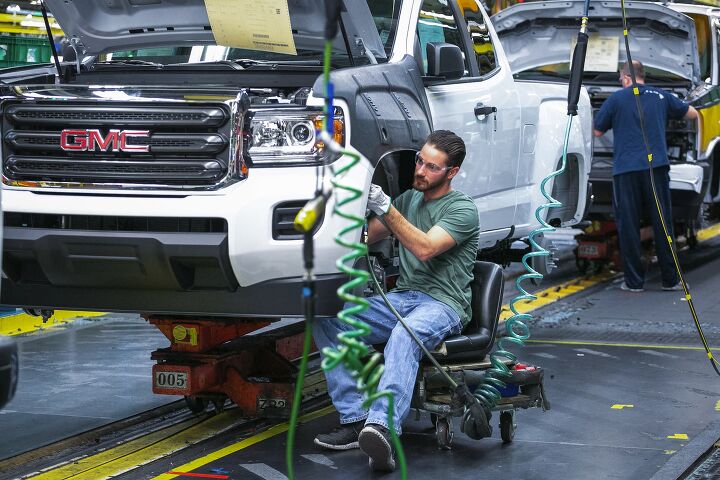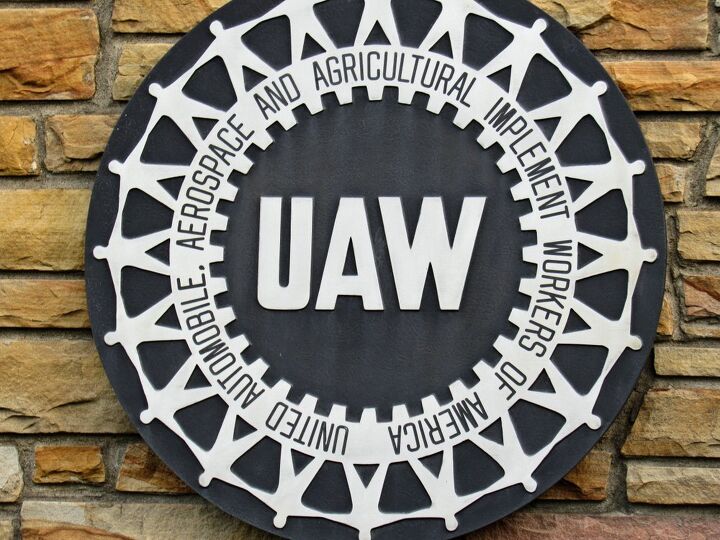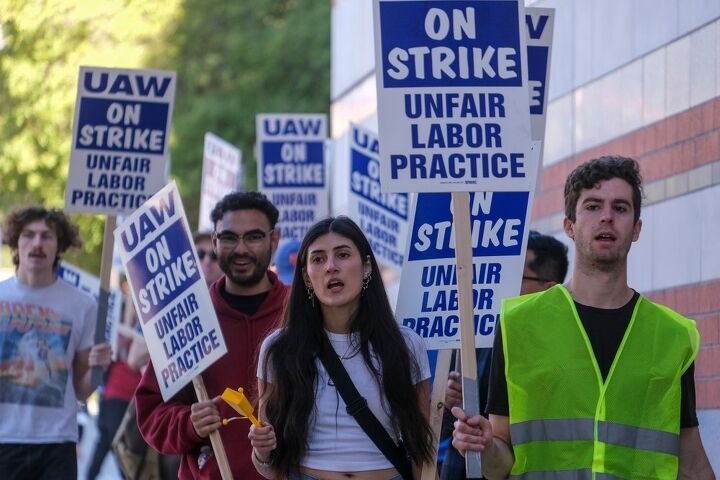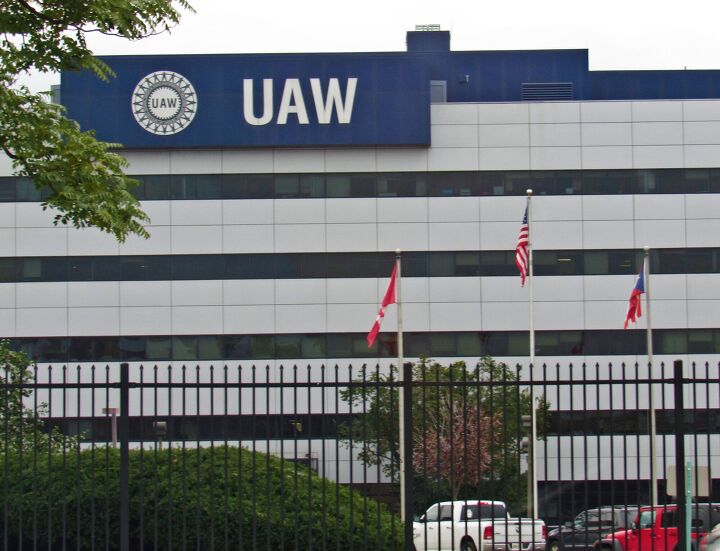#uaw
Report: Suppliers Asking Automakers for Pricing Concessions Over UAW Strike
Ramifications from the UAW's strike against Detroit automakers was always going to reverberate throughout the industry and suppliers are asking for some concessions. But the reason isn’t wholly down to some of the obstacles created by the recent work stoppages and the long term implications are beginning to mount.
UAW Strikes Slated to Expand Next Week
America’s automotive union has committed itself to expanding strikes if leadership feels meaningful progress has not been made by the end of this week. UAW President Shawn Fain has said more factories would be called up to picket if the state of contract negotiations are still deemed lacking on Friday.
While the union hasn’t indicated which (or how many) facilities would be joining the strike, messaging from the UAW has tried to convey to the public that it’s serious about having its demands met and will do whatever it takes to reach its contract goals.
UAW Cites Slow Negotiations as Strike Continues, Snubs Politicians
Contract negotiations between Detroit automakers and the UAW resumed over the weekend with union leadership signaling that little progress had been made. Despite Stellantis having matched the 20-percent raises offered by GM and Ford over the weekend, UAW President Shawn Fain has said the overall agreements remain unsatisfactory.
As mentioned in our earlier coverage, the union is seeking a 40 percent raise across the board through 2027 — resulting in roughly $25 an hour (around $52,000 per year) for starting employees. Some of the benefits, many of which had been rolled back as concessions during the 2008 financial crisis, are also sticking points. Fain wants workers to see those benefits restored, claiming the industry can easily afford them.
Auto Industry Strike: UAW and Big Three Fail to Agree on Terms
After weeks of speculation over whether the UAW and Big Three automakers would come to an agreement, we have our answer: They didn’t. Last night, the Union launched a strike against Ford, GM, and Chrysler/Stellantis, taking almost 13,000 workers off production lines and factory floors across the country.
97 Percent of UAW Members Approve Strike Action
In news that surprises no one, members of the UAW have voted overwhelmingly in favor of a strike should their contracts expire in mid-September.
UAW Makes Sizable Demands of GM, Ford, Stellantis
There has been loads of speculation about what the United Automobile Workers would be asking for during this year’s contract negotiations, with the assumption being that demands would be fairly lofty. Much of this was fueled by statements made by UAW leadership, especially those coming from President Shawn Fain.
Following its massive corruption scandal, union members sought a change in management and Fain is eager to prove himself as on the side of workers. He’s taken a more-adversarial approach to the industry than his predecessors and has promised to make up for ground lost over the last few decades. While demands were initially left vague, the UAW has since shared a series of specific proposals to be brought forward during contract negotiations with Ford, General Motors, and Stellantis. Compared to the standards we’ve become accustomed to, they are indeed lofty.
Report: Unifor Leadership Seeking Friendlier Approach Than UAW
Canada’s Unifor is slated to negotiate terms with Stellantis, General Motors, and the Ford Motor Company starting next month. But it appears to be taking a softer approach than what we’ve been seeing from its counterpart in the United States.
The UAW has been promising to play hardball with automakers in an effort to regain lost ground stemming back to the early 2000s. It’s going into contract negotiations with an adversarial tone and has said it would withhold support of any politician that refused to support its demands. But Unifor seems to be taking up a more cordial tone.
UAW Seeking Friends in Washington DC, Threatens to Withhold Biden Support
UAW leadership headed to Washington last week to drum up support from politicians as it engages in contract negotiations with Detroit-based automakers. While this has often been the status quo for the union, UAW President Shawn Fain has suggested the government would help ensure a fair deal with the automotive industry.
While union leadership has opted to meet with the usual roster of Democrats, it has said it would withhold support of Joe Biden’s reelection campaign if it didn’t think the White House would be offering the kind of help it needs.
Union Bargaining Begins in Detroit
The United Auto Workers (UAW) is commencing contract negotiations with General Motors, Stellantis, and the Ford Motor Company this week. Members of the union’s executive board, along with UAW President Shawn Fain, appeared outside Stellantis' Sterling Heights Assembly Plant early Wednesday morning to draw attention to the talks.
The plan is to see each manufacturer as a preamble to the formal negotiations, which technically begin on Friday. But the union is also desperate to show itself in a better light after expansive corruption scandals implicated some of its now-ousted top brass. For most people living in North America, wages haven’t kept pace with the cost of living and inflationary pressures are exacerbating the issue. If there was ever a time to get the American public back on the side of unions, it’s now.
Ohio Battery Strikers Reject Second UAW-Negotiated Deal
The strike at the Clarios battery plant in Holland, Ohio, is reportedly ongoing after workers rejected a deal struck between the company and negotiators from the United Auto Workers union. Roughly 550 employees represented by UAW Local 12 walked out on May 8th over changes to overtime eligibility and production incentives, with a select few picketing outside the factory entrance.
Report: Ohio Court Orders Limited UAW Picketing
A little over a week ago, a few hundred workers went on strike at the Clarios battery plant in Holland, Ohio, over failed labor negotiations. While picketing is standard practice for UAW members dissatisfied with their contracts, the Lucas County Court of Common Pleas issued the restraining order on Friday to prevent striking workers from disrupting business operations and creating an allegedly unsafe environment.
UAW Votes Out Establishment Leadership, Shawn Fain Becomes New Prez
Over the weekend, Shawn Fain was declared the winner over incumbent Ray Curry in the United Auto Workers’ presidential runoff election. While the race was tight, and the results had to be delayed so a federally appointed monitor to examine some 1,600 challenged ballots, members effectively voted out the Reuther Administrative Caucus which has controlled the union for decades.
UAW Election Results Delayed Due to Challenged Ballots
Results of the United Auto Workers (UAW) presidential runoff election are being delayed so that a federally appointed monitor can look into challenged ballots. The union’s Election Vendor began mailing ballots to members in January. However, the race has been extremely close, with Shawn Fain leading incumbent Ray Curry by several fractions of a percent and there are now concerns over unresolved ballots.
UAW Vying to Represent GM Battery Plant Employees
On Monday, the United Auto Workers (UAW) announced that it is seeking to represent workers employed by the Ohio-based joint venture between General Motors and LG Energy. The union said that it had filed a petition on behalf of 900 people building Ultium battery cells, saying that a majority of the plant’s workforce had already signed cards indicating that they wanted UAW representation.
Striking Stellantis Workers Considering Tentative Deal
United Auto Workers union members went on strike over the weekend to pressure Stellantis into retaining jobs they’re worried might evaporate as the industry attempts to transition to battery electric vehicles. UAW Local 1166, representing the workers at the engine and transmission plant located in Kokomo, Indiana, was in negotiations with the automaker over this weekend. But things fell apart on Saturday, leading to a formal strike that has reportedly resulted in a tentative agreement on their local contract.






























Recent Comments